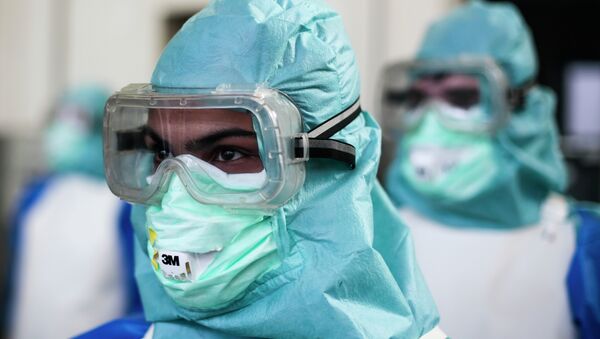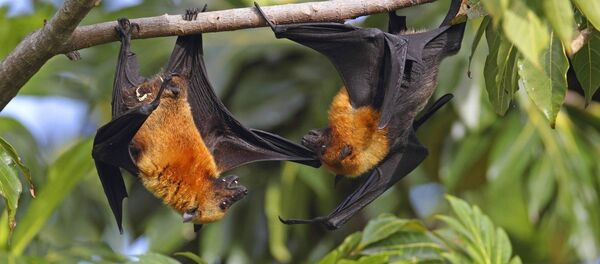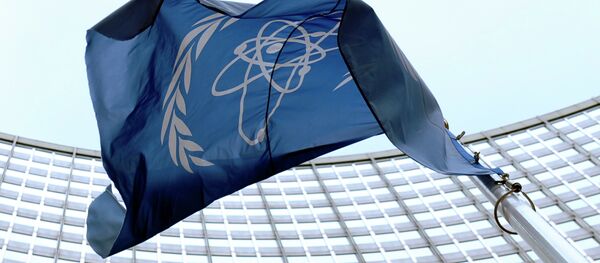"You do have to devote resources to known threats …but there are going to be unknown threats that we can't really predict and that's why it's important that people get very adept at understanding disease surveillance," Amesh Adalja, Senior Associate at the Center for Health Security at the University of Pittsburgh Medical Center, told Sputnik Monday.
Adalja went on to say that the Ebola outbreak, which originated in West Africa at the end of 2013 and later spread to other countries with several cases having been reported in the United States, was "a big wake up call to the US health care industry to prepare for emerging infectious diseases".
Matt McCarthy, an Assistant Professor of Medicine at Cornell Medical College, told Sputnik Monday that having gained experience from the cases of Ebola in the United States and around the world health professional are now better prepared for another potential outbreak.
"We've got much better protocols in place now," McCarthy said. "There's confusion with any outbreak, but the silver lining here is that we'll be prepared the next time Ebola, or some other lethal pathogen reaches us," he added.
However, Susan Fisher-Hoch, Professor of Epidemiology at The University of Texas School of Public Health, points to the lack of funding, put forward for vaccines against deadly diseases similar to Ebola, such as the Lassa Fever, that stands in the way of exercising effective disease-prevention strategies.
"Once again we developed a vaccine [for the Lassa Fever] in the 1990's and a treatment, but no human studies have been done, because nobody would fund them," Fisher-Hoch told Sputnik Monday, stressing that action is usually taken when the situation reaches a critical point.
"I think the virologists are [ready] because they've done as much as they can to make the vaccine…but then the politicians and the pharmaceutical companies need to take them to human studies and nobody will put up the money to that," Fisher-Hoch told Sputnik.
More than 8,000 people have died from Ebola since the start of the epidemic, according to the latest World Health Organization (WHO) data. The United States has allocated over $400 million to help fight the Ebola outbreak.
Ebola is spread through direct contact with the bodily fluids of those infected and there is still no officially-approved cure for the disease. However, several countries, including the United States and Russia, are currently developing Ebola vaccines.




